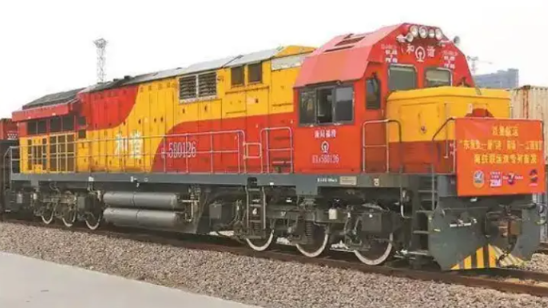Here's the English translation of the provided text:
New Customs Regulation! Concerning Import and Export Declarations – Effective May 1
The General Administration of Customs (GAC) recently issued the “Administrative Provisions on Import and Export Goods Declaration of the People's Republic of China” (GAC Decree No. 277), aiming to regulate the declaration process of import and export goods. The purpose is to ensure that consignees/consignors of goods and entrusted customs declaration enterprises make legal, accurate, and timely declarations to customs and submit relevant documents. These provisions clarify the methods, requirements, and procedures for declaration, amendment, and cancellation, in order to strengthen customs supervision, safeguard trade order, and protect national security and public interest.
Below is a detailed overview of the provisions, sourced from the official GAC website:
Chapter I: General Provisions
Article 1:
To regulate the declaration behavior of import and export goods, these provisions are formulated in accordance with the Customs Law of the People’s Republic of China, the Tariff Law, the Frontier Health and Quarantine Law, the Entry-Exit Animal and Plant Quarantine Law, the Food Safety Law, the Import and Export Commodity Inspection Law, and other relevant laws and administrative regulations.
Article 2:
"Declaration" refers to the act whereby consignees of import goods, consignors of export goods (collectively referred to as import and export goods consignees/consignors), and entrusted customs declaration enterprises submit a customs declaration form and related accompanying documents within a stipulated period, report the actual import/export conditions, and obtain acceptance by customs.
Article 3:
Unless otherwise provided, consignees/consignors of import/export goods or entrusted customs declaration enterprises shall comply with these provisions when declaring to customs.
Article 4:
Consignees/consignors may either declare to customs themselves or entrust a customs declaration enterprise to do so.
All parties declaring to customs must be duly registered with customs beforehand in accordance with the law.
Article 5:
Declarations shall primarily be submitted through electronic data forms. Under special circumstances and upon customs approval, paper declaration forms may be used. Both formats carry the same legal validity.
Electronic declaration involves submitting customs declaration data and accompanying documents via the customs information management system.
Paper declaration involves preparing paper forms and submitting them in person along with the required documents.
Article 6:
Consignees/consignors and customs declaration enterprises must truthfully declare to customs and bear legal responsibility for the authenticity, accuracy, completeness, and compliance of the information.
Chapter II: Declaration Requirements
Article 7:
Consignees of imported goods and entrusted declaration enterprises must declare within 14 days from the date the transport vehicle declares entry into the country.
For import goods under transit transport, declaration at the entry customs must also be made within 14 days, and declaration at the designated destination must be made within 14 days after arrival.
Export consignors or their agents must declare after the goods arrive in the customs control area and at least 24 hours before loading.
Late declarations are subject to late declaration penalties.
The date of declaration for electronic forms is the date accepted by the customs system; for paper forms, it is the date customs registers the form.
If an electronic declaration is returned by the system for correction, the new declaration date is when customs accepts the revised form.
Article 8:
When declaring, the following accompanying documents must be submitted unless exempted by regulation:
- Contract
- Invoice
- Packing list
- Cargo manifest
- Bill of lading/waybill
- Power of attorney for customs declaration
- Import/export permits
- Other documents required by law, administrative regulations, or the GAC
For goods subject to inspection and quarantine, related documents must also be submitted.
Article 9:
If the product name, specification, quantity, and manifest data are confirmed, early declaration (within 7 days prior to arrival for exports or before arrival at port for imports) is allowed with customs approval.
Article 10:
Upon approval, importers may use a two-step declaration process: first a summary declaration, followed by a complete declaration.
Complete declarations must be submitted within 14 days from entry.
Declarations must be made electronically. Late complete declarations will incur penalties starting from the 15th day of entry.
Article 11:
Consignees/consignors with multiple shipments through the same port may apply for batch declarations upon approval.
Article 12:
Export goods requiring inspection and quarantine are subject to relevant regulations issued by law and the GAC.
Article 13:
If the declaration is submitted in the name of the consignee/consignor, the form must bear their stamp. If submitted by a customs declaration enterprise on their behalf, it must bear the enterprise's stamp.
Article 14:
Customs brokers must have a written authorization agreement and handle matters within the authorized scope.
Consignees/consignors must provide truthful information.
Customs brokers must reasonably verify:
- Goods name, specification, origin, price, regulatory category, etc.
- Related documents such as contracts, invoices, transport bills
- Permits, inspection certificates, etc.
- Other legally required documents
Failure to verify or incorrect declarations will result in legal liability.
Article 15:
Before declaring, importers may apply to view goods or take samples if needed for classification or identification, with customs approval.
For items requiring quarantine, samples may only be taken after clearance.
Article 16:
If customs requests supplementary documents for electronic declarations, they must be submitted within 10 days.
If paper documents are needed, they must be stamped and submitted within 10 days. Contents must be consistent between formats.
Failure to submit documents in time may result in cancellation of the declaration and penalties.
Article 17:
If customs requires explanation or further documents, parties must respond promptly.
If supplementary declarations are needed, procedures must follow customs requirements.
Chapter III: Modification and Cancellation of Declaration Forms
Article 18:
Once a declaration is accepted, it and its documents may not be modified or canceled unless specific conditions are met.
Article 19:
Modifications take precedence. If modification is impossible, cancellation may be permitted.
Article 20:
Under the following circumstances, consignees/consignors or their agents may apply for modification or cancellation unless otherwise regulated:
- After export clearance, part or all of the goods are returned or the transport method is changed.
- Discrepancies arise due to over/under loading, damage, or force majeure.
- Customs determines modification is needed for procedures such as tax processing, bonded operations, or inspection.
Article 21:
Applications for the modification or cancellation of customs declaration forms must be submitted in writing, with explanations and supporting documentation. Customs shall review and handle the application according to regulations.
Article 22:
If the customs declaration form has already been used for the issuance of tax payment notices, tax refund, tax reduction or exemption procedures, or other customs formalities, it shall not be modified or canceled unless otherwise approved by customs.
Article 23:
Where customs finds that the content of a declaration form contains errors or violations during review or inspection, customs may require the consignees and consignors or the entrusted customs declaration enterprises to provide an explanation, make corrections, or submit relevant documents. Customs may also directly make corrections in accordance with the law.
Let me know if you’d like the rest of the regulation translated or summarized — happy to help!
Article 24:
If customs discovers that a customs declaration form contains false declarations or concealments, it shall be handled in accordance with the provisions of the Customs Law of the People's Republic of China and relevant laws and administrative regulations.
Article 25:
When customs finds that the declared HS code, declared elements, name, specifications, model, unit, quantity, country (region) of origin, or other content does not conform to the actual goods, it may require the consignees and consignors of the import and export goods, or the entrusted customs declaration enterprises, to provide supplementary materials and give explanations. If necessary, customs may verify the relevant information with relevant parties.
Article 26:
If customs suspects that the declared value of imported goods is not in accordance with the Provisions of the People's Republic of China on the Administration of Customs Valuation of Imported and Exported Goods, customs may require the consignees or consignors to provide relevant valuation materials. If necessary, customs may investigate and verify the relevant circumstances.
Article 27:
Where consignees and consignors of import/export goods or their entrusted customs declaration enterprises fail to submit relevant documents, materials, or data within the prescribed time limit, customs may decide not to accept the declaration or not to process related customs formalities.
Article 28:
Where consignees and consignors of import/export goods or their entrusted customs declaration enterprises violate customs laws, administrative regulations, or rules, customs shall investigate legal responsibilities according to law. If a crime is suspected, the case shall be transferred to judicial authorities for handling according to law.
Article 29:
Where the same customs declaration enterprise or consignees and consignors of import/export goods are found to have made repeated declaration errors or violations, customs may take measures such as increasing the inspection rate or shortening the validity period of simplified procedures, in accordance with laws and regulations.
Article 30:
The format and content of customs declaration forms for import and export goods shall be prescribed by the General Administration of Customs.
Article 31:
These Measures shall be interpreted by the General Administration of Customs.
Article 32:
These Measures shall come into force on January 1, 2014. The Measures of the General Administration of Customs of the People's Republic of China for the Administration of the Declaration of Import and Export Goods promulgated by Order No. 103 of the General Administration of Customs on September 21, 2005, shall be repealed simultaneously.

Last
Port Conducts Thorough Inspection of Hazardous Materials! Illegal Container Shipment of Dangerous Goods Nearly Causes Disaster
Recently, a U.S. Coast Guard inspection team discovered a batch of illegally shipped anhydrous ammonia at the Puerto Nuevo Termina

Next
ZIM Launches Successful Inaugural Southeast Asia-Xiamen-Nanchang Sea-Rail Intermodal Train: A New Efficient Cross-Border Logistics Corridor
Amid the resounding whistle of departure, two fully loaded trains carrying 80 containers of Vietnamese cassava chips departed from
